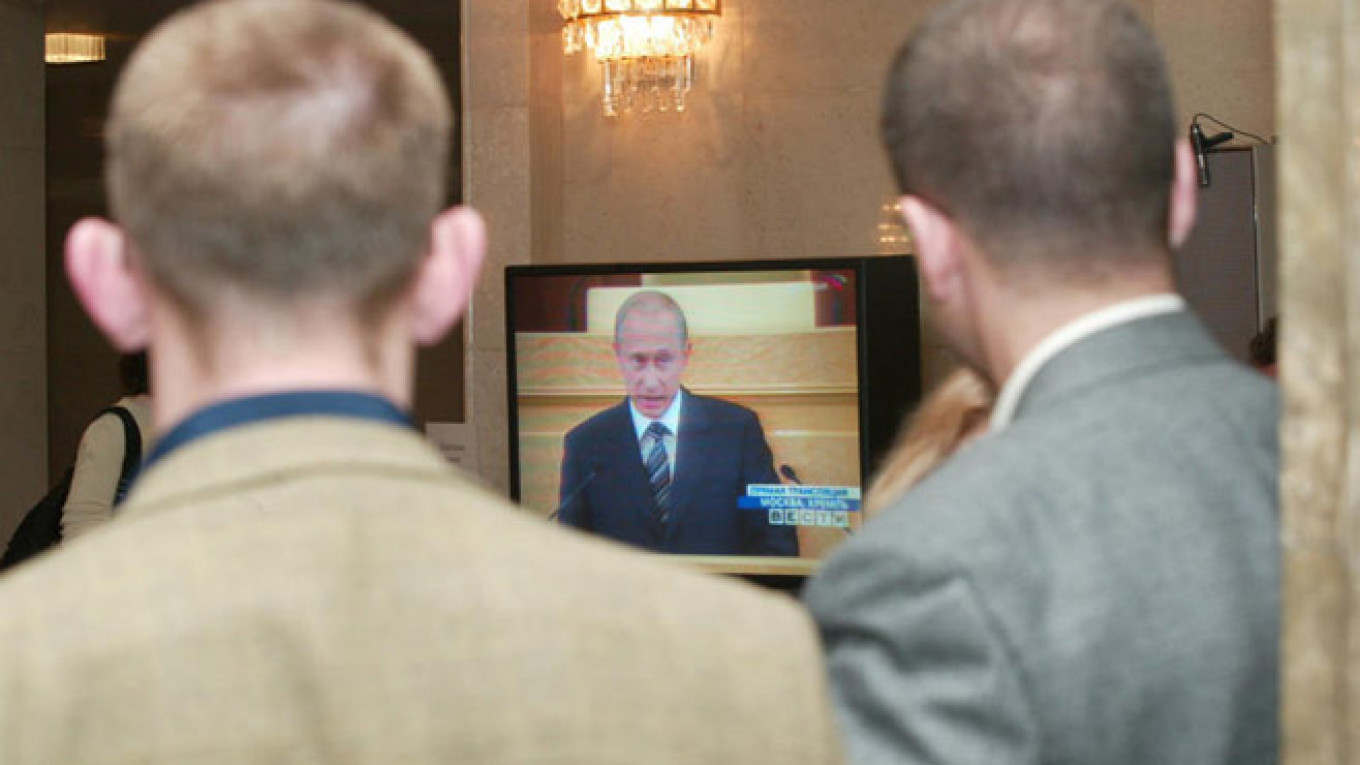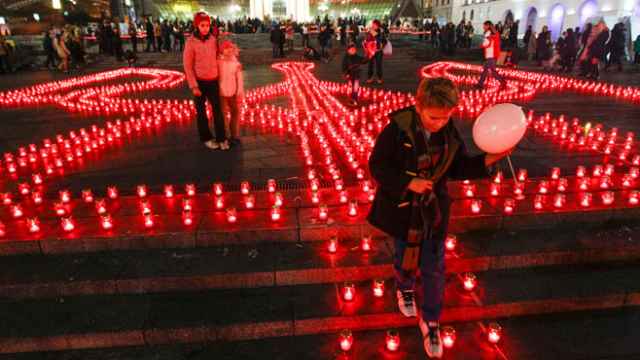This article was originally published by EurasiaNet.org.
Kazakhstan's journalistic community has long debated how to face the pervasive influence of Russian media in the Central Asian country. The topic has increased in urgency with the bitter international standoff between Russia and Ukraine, which is partly playing out on Russian television.
Russian state channels like Rossia, NTV and Channel One — which critics see as Kremlin propaganda tools — enjoy huge popularity in Kazakhstan, the Media Kurultai (an annual gathering of journalists in Almaty) heard on Nov. 14.
This creates a national security threat to Kazakhstan, where viewers are swallowing their poisonous coverage about Ukraine, speakers told a panel on information security.
The public mindset in Kazakhstan is being shaped by Russian officials and TV presenters like Dmitry Kiselyov, who is well-known for his anti-Western tirades, opposition politician Amirzhan Kosanov told the conference. This means that Kazakhstanis end up "viewing events in Ukraine through the eyes of [Russian Foreign Minister Sergei] Lavrov or Kiselyov," he said.
Yet Astana is itself pushing viewers into the arms of Russian TV, Kosanov argued, by controlling the Kazakhstani media so tightly that it becomes unattractive.
"The challenge to information security emerges from governmental policies," agreed Adil Nurmakov, a journalism professor at Almaty's KIMEP University. "It's a vicious circle."
"Now [government officials] have found themselves in a situation when they're wondering why people are not watching Kazakhstani TV channels and why they're not reading the Kazakhstani press," Nurmakov told EurasiaNet.org on the sidelines of the forum. "But there's nothing to read and nothing to watch."
Kazakhstani TV channels keep losing viewers to Russian ones, Bagdat Kodzhakhmetov, head of the private Channel 31, told the conference: Domestic channels have lost 16 percent of their viewers since the start of the year.
One factor pushing viewers to reach for the remote is legislation forcing channels to carry at least half their content in Kazakh, Kodzhakhmetov suggested. Viewers "have developed a preference for Russian-language programming," he said, and therefore "switched to channels they feel more comfortable watching."
Kazakhstan's most popular TV channel is Channel One Eurasia, which is domestically owned but carries much content from Russia's Channel One, Tatyana Startseva of the TNS Central Asia media market research company told the conference.
Broadcasters at the forum complained about a lack of financing to create domestic content that could compete with the better-financed Russian media. Kazakhstan's government heavily subsidizes the press, but — according to research presented at the Media Kurultai last year — subsidies are channeled toward promoting a feel-good factor and bolstering the popularity of President Nursultan Nazarbayev.
A freer press would be in the government's interests, argued media tycoon Armanzhan Baytasov, since it would "only consolidate our information security."
But journalists weren't holding out great hopes. The Media Kurultai heard the same arguments last year, but little has changed since.
"The main problem," concluded Nurmakov, "is the way the government sees information security, and it sees it as more regulation, more restriction."
A Message from The Moscow Times:
Dear readers,
We are facing unprecedented challenges. Russia's Prosecutor General's Office has designated The Moscow Times as an "undesirable" organization, criminalizing our work and putting our staff at risk of prosecution. This follows our earlier unjust labeling as a "foreign agent."
These actions are direct attempts to silence independent journalism in Russia. The authorities claim our work "discredits the decisions of the Russian leadership." We see things differently: we strive to provide accurate, unbiased reporting on Russia.
We, the journalists of The Moscow Times, refuse to be silenced. But to continue our work, we need your help.
Your support, no matter how small, makes a world of difference. If you can, please support us monthly starting from just $2. It's quick to set up, and every contribution makes a significant impact.
By supporting The Moscow Times, you're defending open, independent journalism in the face of repression. Thank you for standing with us.
Remind me later.






